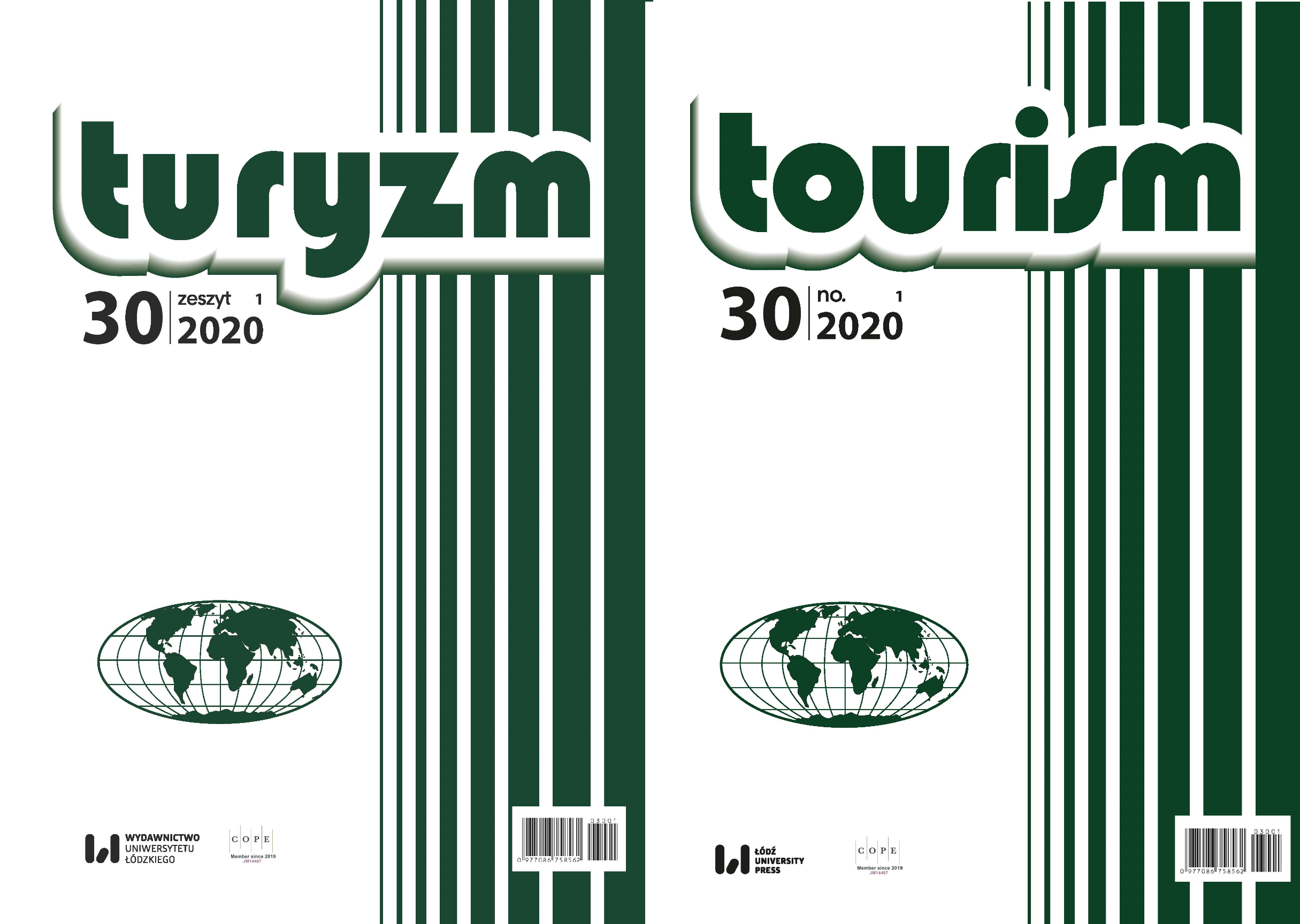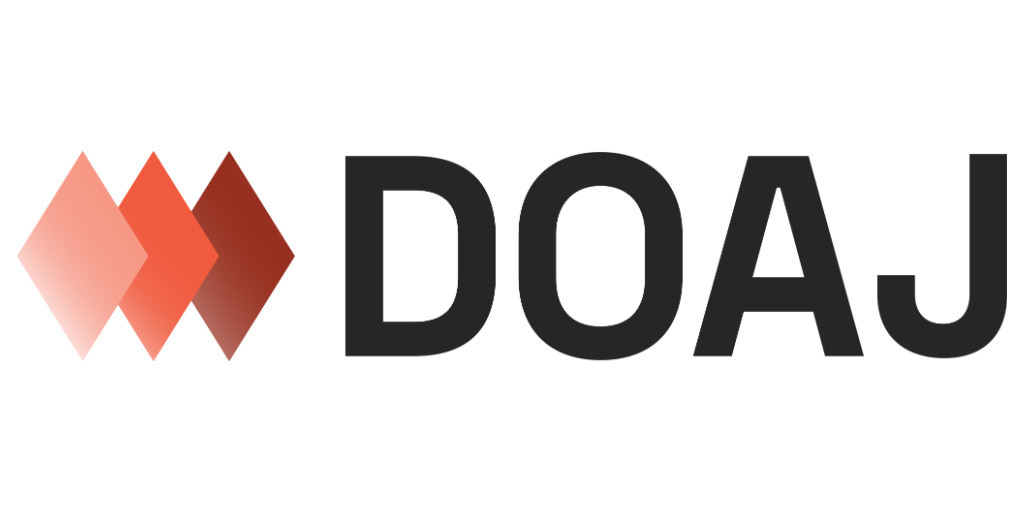Konkurs jako metoda pedagogiczna w turystycznej edukacji uniwersyteckiej: studium przypadku nauczania twórczego rozwiązywania problemów
DOI:
https://doi.org/10.18778/0867-5856.30.1.05Keywords:
turystyka, edukacja uniwersytecka, konkursAbstract
Głównym celem artykułu jest dyskusja na temat tego, czy możliwość implementacji konkursu jako narzędzia edukacyjnego do rozwijania kreatywności uczestników jest ograniczona, kiedy główną motywację uczestniczących w nim studentów stanowi wygrana. Na potrzeby niniejszego artykułu jako studium przypadku wykorzystano konkurs 24HOURS. Do oceny efektywności konkursu zastosowano trzy metody: pisemną ankietę, indywidualne wywiady pogłębione oraz ankietę online. Wyniki wykazały, iż konkurs zwiększył kreatywność studentów w stopniu niezadowalającym, ponieważ bardziej byli oni skupieni na wygraniu lub zdobyciu wiedzy niż na współpracy lub interakcji z członkami innych zespołów studenckich. Badanie potwierdziło, że opiekunowie studentów są odpowiedzialni za uruchomienie mechanizmów ukierunkowanych zarówno na współpracę, jak i na kreatywność podczas konkursu. Biorąc jednak pod uwagę, że oczekiwania dotyczące zaangażowania opiekunów stały się źródłem pewnych problemów, rola tych osób powinna zostać ściśle określona. Analiza studium przypadku przedstawiona w tym artykule powinna przyczynić się do lepszego rozumienia przez pedagogów projektowania i wykorzystywania konkursów jako narzędzi edukacyjnych.
Downloads
References
Angrosino, M. (2008). Doing ethnographic and observational research. London: SAGE. DOI: https://doi.org/10.4135/9781849208932
Google Scholar
DOI: https://doi.org/10.4135/9781849208932
Artiles, J.A., Wallace, D.R. (2014). Methods for innovation: Observations from the Education DesignShop. FabLearn 2014, Conference on Creativity and Fabrication in Education, 25–26 października, Stanford University, USA.
Google Scholar
Austin, J.R. (1990). Competition – is music education the loser? Music Educators Journal, 76 (6), 21–25. DOI: https://doi.org/10.2307/3400964
Google Scholar
DOI: https://doi.org/10.2307/3400964
Barkathunnisha, A.B., Lee, D., Price, A. (2017). Transcending towards a spirituality-based platform in tourism higher education: a contemplation of the pedagogical implications. Journal of Hospitality, Leisure, Sport and Tourism Education, 21, 174–184. DOI: https://doi.org/10.1016/j.jhlste.2016.11.003
Google Scholar
DOI: https://doi.org/10.1016/j.jhlste.2016.11.003
Boyle, E., Rosmalen, P. Van, Macarthur, E., Connolly, T., Hainey, T., Johnston, B., Ger, P.M., Fernández, B., Kärki, A., Pennanen, T., Manea, M., Starr, K. (2012). Cognitive task analysis (CTA) in the continuing/higher education methods using games (CHERMUG) project. W: F. Patrick (red.), Proceedings of the European Conference on Games Based Learning (s. 63–72). Sonning Common: Academic Publishing International Limited.
Google Scholar
Cohen, E.G. (1994). Restructuring the classroom: Conditions for productive small groups. Review of Educational Research, 64 (1), 1–35. DOI: https://doi.org/10.3102/00346543064001001
Google Scholar
DOI: https://doi.org/10.3102/00346543064001001
Dagiene, V. (2010). Sustaining informatics education by contests. Lecture Notes in Computer Science, 5941, 1–12. DOI: https://doi.org/10.1007/978-3-642-11376-5_1
Google Scholar
DOI: https://doi.org/10.1007/978-3-642-11376-5_1
Dagiene, V., Skupiene, J. (2004). Learning by competitions: Olympiads in informatics as a tool for training high-grade skills in programming. W: T. Boyle, P. Oriogun, A. Pakstas (red.), 2nd International Conference on Information Technology: Research and Education (s. 79–83). London: IEEE. DOI: https://doi.org/10.1109/ITRE.2004.1393650
Google Scholar
DOI: https://doi.org/10.1109/ITRE.2004.1393650
Dale, C., Robinson, N. (2001). The theming of tourism education: A three-domain approach. International Journal of Contemporary Hospitality Management, 13 (1), 30–35. DOI: https://doi.org/10.1108/09596110110365616
Google Scholar
DOI: https://doi.org/10.1108/09596110110365616
Fidgeon, P.R. (2010). Tourism education and curriculum design: A time for consolidation and review? Tourism Management, 31 (6), 699–723. DOI: https://doi.org/10.1016/j.tourman.2010.05.019
Google Scholar
DOI: https://doi.org/10.1016/j.tourman.2010.05.019
de Freitas, S., Oliver, M. (2006). How can exploratory learning with games and simulations within the curriculum be most effectively evaluated? Computers and Education, 46 (3), 249–264. DOI: https://doi.org/10.1016/j.compedu.2005.11.007
Google Scholar
DOI: https://doi.org/10.1016/j.compedu.2005.11.007
Gibbs, G. (2008). Analysing qualitative data. London: SAGE.
Google Scholar
Heckman, J., Kautz, T. (2012). Hard evidence on soft skills. Labour Economics, 19 (4), 451–464. DOI: https://doi.org/10.1016/j.labeco.2012.05.014
Google Scholar
DOI: https://doi.org/10.1016/j.labeco.2012.05.014
Johnston, B., Boyle, L., MacArthur, E., Manion, B.F. (2013). The role of technology and digital gaming in nurse education. Nursing Standard, 27 (28), 35–38. DOI: https://doi.org/10.7748/ns2013.03.27.28.35.s9612
Google Scholar
DOI: https://doi.org/10.7748/ns2013.03.27.28.35.s9612
Kanungo, T., Mount, D.M., Netanyahu, N.S., Piatko, C.D., Silverman, R., Wu, A.Y. (2002). An efficient k-means clustering algorithm: Analysis and implementation. IEEE Transactions of Pattern Analysis and Machine Intelligence, 24 (7), 881–892. DOI: https://doi.org/10.1109/TPAMI.2002.1017616
Google Scholar
DOI: https://doi.org/10.1109/TPAMI.2002.1017616
Korycka-Skorupa, J. (2007). Trójkąt Osanna jako forma prezentacji danych statystycznych i legenda map tematycznych. Polski Przegląd Kartograficzny, 39, 340–353.
Google Scholar
Kvale, S. (2008). Doing interviews. London: SAGE. DOI: https://doi.org/10.4135/9781849208963
Google Scholar
DOI: https://doi.org/10.4135/9781849208963
Li, Y.Q., Liu, C.H. (2016). How to establish a creative atmosphere in tourism and hospitality education in the context of China. Journal of Hospitality, Leisure, Sport and Tourism Education, 18, 9–20. DOI: https://doi.org/10.1016/j.jhlste.2015.11.001
Google Scholar
DOI: https://doi.org/10.1016/j.jhlste.2015.11.001
Liang, C., Lin, W.-S. (2015). The Interplay of creativity, imagination, personality traits, and academic performance. Imagination, Cognition and Personality, 34 (3), 270–290. DOI: https://doi.org/10.1177/0276236614568638
Google Scholar
DOI: https://doi.org/10.1177/0276236614568638
Martowska, K. (2014). Temperamental determinants of social competencies. Polish Psychological Bulletin, 45 (2), 128–133. DOI: https://doi.org/10.2478/ppb-2014-0017
Google Scholar
DOI: https://doi.org/10.2478/ppb-2014-0017
Ndou, V., Mele, G., Del Vecchio, P. (2018). Entrepreneurship education in tourism: an investigation among European Universities. Journal of Hospitality, Leisure, Sport and Tourism Education, 25. DOI: https://doi.org/10.1016/j.jhlste.2018.10.003
Google Scholar
DOI: https://doi.org/10.1016/j.jhlste.2018.10.003
Panitz, T. (1999). Collaborative versus cooperative learning: A comparison of the two concepts which will help us understand the underlying nature of interactive learning. Pobrane z: https://pdfs.semanticscholar.org/82fe/2f093ed061f192e7e5fa44db8588d0f48a9a.pdf?_ga=2.43844709.198895979.1585928208-726482439.1585928208 (20.11.2019).
Google Scholar
Paraskeva, F., Mysirlaki, S., Papagianni, A. (2010). Multiplayer online games as educational tools: Facing new challenges in learning. Computers and Education, 54 (2), 498–505. DOI: https://doi.org/10.1016/j.compedu.2009.09.001
Google Scholar
DOI: https://doi.org/10.1016/j.compedu.2009.09.001
Pauschenwein, J., Goldgruber, E., Sfiri, A. (2013). The identification of the potential of game-based learning in vocational education within the context of the project ‘Play the Learning Game’. International Journal of Emerging Technologies in Learning, 8 (1), 20–23. DOI: https://doi.org/ http://dx.doi.org/10.3991/ijet.v8i1.2359
Google Scholar
DOI: https://doi.org/10.3991/ijet.v8i1.2359
Prince, M. (2004). Does active learning work? A review of the research. Journal of Engineering Education, 93, 223–231. DOI: https://doi.org/10.1002/j.2168-9830.2004.tb00809.x
Google Scholar
DOI: https://doi.org/10.1002/j.2168-9830.2004.tb00809.x
Roisin, D., Fitzmaurice, M. (2005). Collaborative project-based learning and problem-based learning in higher education: A consideration of tutor and student role in learner-focused strategies. W: G. O’Neill, S. Moore, B. McMullin (red.), Emerging issues in the practice of University Learning and Teaching (s. 87–98). Dublin: AISHE/HEA. DOI: https://doi.org/10.1017/CBO9781107415324.004
Google Scholar
DOI: https://doi.org/10.1017/CBO9781107415324.004
Rouzrokh, M., Muldoon, M., Torabian, P., Mair, H. (2017). The memory-work sessions: Exploring critical pedagogy in tourism. Journal of Hospitality, Leisure, Sport and Tourism Education, 21, 163–173. DOI: https://doi.org/10.1016/j.jhlste.2017.08.006
Google Scholar
DOI: https://doi.org/10.1016/j.jhlste.2017.08.006
Runge, J. (2006). Metody badań w geografii społeczno-ekonomicznej. Elementy metodologii, wybrane narzędzia badawcze. Katowice: Wydawnictwo Uniwersytetu Śląskiego.
Google Scholar
Saridaki, M., Gouscos, D., Meimaris, M. (2006). Digital games-based instructional design for students with special education needs: Practical findings and lessons learnt. The 4th European Conference on Game Based Learning, 343–350.
Google Scholar
Savenye, W.C., Robinson, R.S. (2005). Using qualitative research methods in higher education. Journal of Computing in Higher Education, 16 (2), 65–95. DOI: https://doi.org/10.1007/BF02961475
Google Scholar
DOI: https://doi.org/10.1007/BF02961475
Schedule project – significance of competition in higher education (2015). Pobrane z: http://schedule.edu.pl/ (12.11.2019).
Google Scholar
Sigala, M. (2002). The evolution of internet pedagogy: Benefits for tourism and hospitality education. The Journal of Hospitality, Leisure, Sport and Tourism Education, 1 (2), 27–42. DOI: https://doi.org/10.3794/johlste.12.4
Google Scholar
DOI: https://doi.org/10.3794/johlste.12.4
Sigala, M., Baum, T. (2003). Trends and issues in tourism and hospitality higher education: Visioning the future. Tourism and Hospitality Research, 4 (4), 367–376. DOI: https://doi.org/10.1177/146735840300400409
Google Scholar
DOI: https://doi.org/10.1177/146735840300400409
Sylla, M., Chruściński, J., Drużyńska, P., Płóciennik, P., Osak, W. (2015). Analiza wybranych czynników rozwoju turystyki MICE na tle potencjału Łodzi. Turyzm/Tourism, 25 (2), 123–131.
Google Scholar
Virvou, M., Katsionis, G. (2008). On the usability and likeability of virtual reality games for education: The case of VR-ENGAGE. Computers and Education, 50 (1), 154–178. DOI: https://doi.org/10.1016/j.compedu.2006.04.004
Google Scholar
DOI: https://doi.org/10.1016/j.compedu.2006.04.004
Woltering, V., Herrler, A., Spitzer, K., Spreckelsen, C. (2009). Blended learning positively affects students’ satisfaction and the role of the tutor in the problem-based learning process: Results of a mixed-method evaluation. Advances in Health Sciences Education, 14 (725). DOI: https://doi.org/10.1007/s10459-009-9154-6
Google Scholar
DOI: https://doi.org/10.1007/s10459-009-9154-6
Zalecenia Parlamentu Europejskiego i Rady z dnia 18 grudnia 2006 r. w sprawie kompetencji kluczowych w procesie uczenia się przez całe życie (2006). Dziennik Urzędowy Unii Europejskiej, 2006/962/E. Pobrane z: https://eur-lex.europa.eu/legal-content/PL/TXT/PDF/?uri=CELEX:32006H0962&from=EN (18.10.2019).
Google Scholar
Downloads
Published
How to Cite
Issue
Section
License

This work is licensed under a Creative Commons Attribution-NonCommercial-NoDerivatives 4.0 International License.










